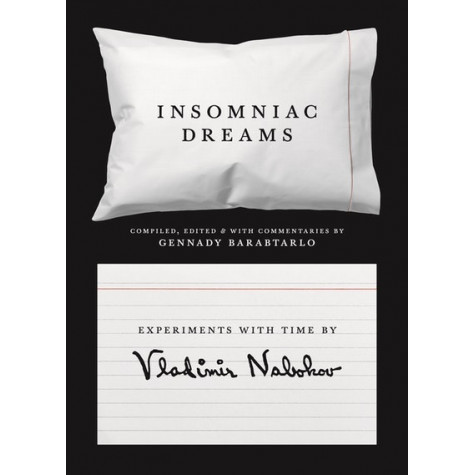Nabokov's dream diary—published for the first time
On October 14, 1964, Vladimir Nabokov, a lifelong insomniac, began a curious experiment. Over the next eighty days, immediately upon waking, he wrote down his dreams, following the instructions in An Experiment with Time by British philosopher John Dunne. The purpose was to test the theory that time may go in reverse, so that a later event may generate an earlier dream. The result—published here for the first time—is a fascinating diary in which Nabokov recorded sixty-four dreams (and subsequent daytime episodes) on 118 index cards, providing a rare glimpse of the artist at his most private. Insomniac Dreams presents the text of Nabokov’s dream experiment, illustrated with a selection of his original index cards, and provides rich annotations and analysis that put them in the context of his life and writings.
About the Author
Vladimir Vladimirovich Nabokov was born on April 23, 1899, in St. Petersburg, Russia. The Nabokov household was trilingual, and as a young man, he studied Slavic and romance languages at Trinity College, Cambridge, taking his honors degree in 1922. For the next eighteen years he lived in Berlin and Paris, writing prolifically in Russian under the pseudonym Sirin and supporting himself through translations, lessons in English and tennis, and by composing the first crossword puzzles in Russian. In 1925 he married Vera Slonim, with whom he had one child, a son, Dmitri. Having already fled Russia and Germany, Nabokov became a refugee once more in 1940, when he was forced to leave France for the United States. There he taught at Wellesley, Harvard, and Cornell. He also gave up writing in Russian and began composing ficticvbn ral books of criticism. Vladimir Nabokov died in Montreux, Switzerland, in 1977.
Gennady Barabtarlo (1949–2019) was professor of literature at the University of Missouri and the author of a number of books on Nabokov.
Review
"Utterly fascinating."—William Boyd, The Guardian
"Handsomely designed . . . . [F]ull of the kind of sleep-deprived, iridescently edged complexity that likes to gather around Vladimir Nabokov's work."—Nicholson Baker, The New Republic
"Dream notes are at the heart of Insomniac Dreams, and are surrounded by helpful and intriguing background material."—Michael Wood, The New York Review of Books
"Show[s] in raw form the wit, facility, and inherent discipline of language easily recognizable as Nabokov's handiwork."—Publishers Weekly

